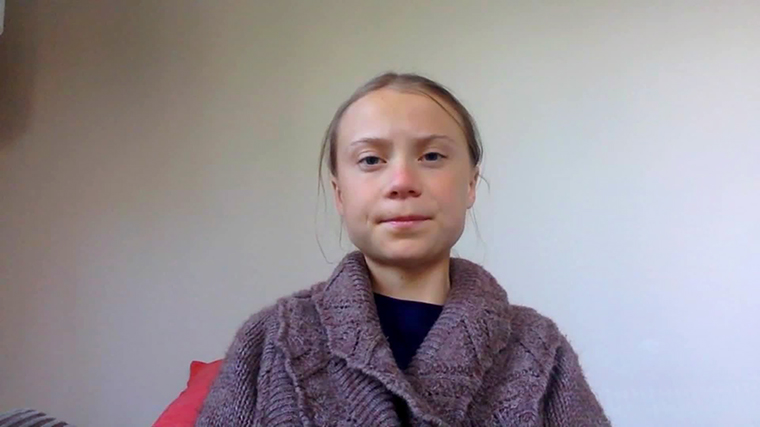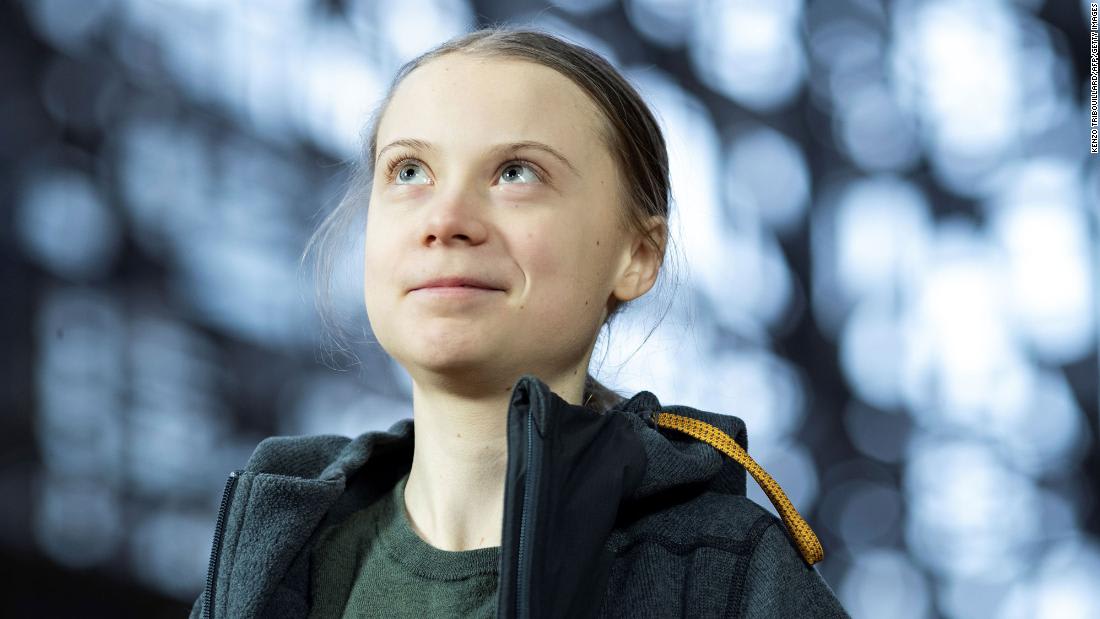Our live coverage of the coronavirus pandemic has moved here.
May 14 coronavirus news
By Zamira Rahim, Joshua Berlinger and Adam Renton, CNN
CNN's global town hall has ended
CNN's global town hall on the coronavirus has now concluded.
Guests on the show, hosted by Anderson Cooper and Dr. Sanjay Gupta, included medical experts, Major League Baseball Commissioner Rob Manfred and children's rights advocate Greta Thunberg.
Check the Town Hall tab above to catch up on what happened during the show.
CNN's Anderson Cooper responds to online criticism over Greta Thunberg's town hall interview
CNN's Anderson Cooper spent the closing moments of the global town hall discussing some of the criticism the company had received online over climate activist Greta Thunberg's appearance on the show.
Cooper referenced a Forbes article that discussed Thunberg being included in what some people online claimed was a studio panel when, in reality, the 17-year-old had conducted a taped interview aired during the town hall.
Other Twitter users questioned Thunberg's qualifications for being included in the show.
"Everyone has to produce content these days. That's what it's all about. It's like a tween on TikTok. You've got to produce content," Cooper said.
"Then someone who's apparently a reporter at Forbes wrote an article about this alleged controversial booking and the concern about it. And the New York Post today wrote about it as well, claiming we were having her on a panel, which is what the first person on Twitter was claiming -- which was made up."
Watch:
This pandemic is a children's rights issue too, says Greta Thunberg
The coronavirus pandemic is impacting children's health and standard of living globally, said climate activist and children's rights proponent Greta Thunberg during CNN's coronavirus town hall.
"Children both do get this disease, and they also spread it on to others," she said. "So, we need to be very careful that this misinformation that it doesn't affect children becomes mainstream. We need to make sure that people understand that this also affects children."
Even children who don't get infected can feel the impact of the coronavirus in other ways, she said. For instance, school meals are many children's main source of nutritious food -- meaning school closures pose a food access threat.
"For many people in the world, they do not have access to clean water or sanitation, to soap, and they don't even have a house to stay home in. And it's very hard for many to keep social distancing," said Thunberg.
She donated prize money to support children: Human Act, a Danish worldwide development organization, recently gave Thunberg $100,000 for her global activism, but she is now directing that money to the UN's Children's Fund (UNICEF).
"We have launched a new campaign to help support UNICEF during the Covid-19 pandemic," Thunberg said during the town hall.
"And that is because during any crisis it is always the most vulnerable people who are hit the hardest, and that is children, especially in the global south, people in the poorest parts of the world."
Read more about Greta Thunberg's CNN town hall appearance:
Watch:
Activist Greta Thunberg says she had coronavirus-like symptoms. She still hasn't been tested

Climate activist Greta Thunberg has joined a group of millions of people around the world who have been able to get a coronavirus test.
Despite being unsure if she ever had coronavirus, Thunberg decided to self-quarantine to protect her and her family, she said in an interview aired during CNN's global town hall Thursday night.
"We still hadn't gotten tested because here you don't get tested unless you're in need of medical help. So, of course, I don't know if I've had it. But I isolated myself anyway and because it is the right thing to do. We all need to take these precautionary actions and do our part in supporting society," Thunberg said from Sweden. "I haven't been affected by this in a way many people have. But, yeah, it was just the obvious thing to do, the only right thing to do."
Some insight on Sweden and the pandemic: Sweden has been an outlier during the coronavirus outbreak. The country has not joined many of its European neighbors in imposing strict limits on citizens' lives, and images of people heading to work on busy streets, or chatting at cafes and bars have raised eyebrows.
Younger children have continued to go to school, although universities and schools for older students have switched to distance learning. Businesses — from hair salons to restaurants — have remained open, although people have been advised to work from home where possible.
On April 7, the government introduced a bill allowing it to act quickly and take decisions on temporary measures where needed. Care home visits were banned from April 1 and the Ministry of Health and Social Affairs asked people to refrain from non-essential travel, adding: "Keep your distance and take personal responsibility."
Watch:
MLB is making plans to play in empty ball parks, commissioner says
From CNN's Josiah Ryan
Major League Baseball Commissioner Rob Manfred said this evening the organization is working on plans for a modified season in which games would take place in empty stadiums.
"It's hopeful that we will have some Major League Baseball this summer," Manfred told CNN's Dr. Sanjay Gupta and Anderson Cooper speaking during CNN's global town hall. "We are making plans about playing in empty stadiums. But as I've said before, all of those plans are dependent on what the public health situation is."
Manfred said he'd spoken to governors in 18 states where the game is played and most expressed hope they'd be able to use the empty parks this summer.
The US is "still way behind" on testing, former HHS secretary says
US President Trump "does not understand testing at all," said Kathleen Sebelius, the former secretary of the Department of Health and Human Services, during CNN's town hall on the global coronavirus pandemic.
"First, it's absolutely incorrect we've done more testing per capita than anyplace on Earth. We may have more tests, we have more people, but per capita we're still way behind," Sebelius said.
"(Trump) clearly doesn't get testing or distancing or how important masks are, and we've got 85,000 people who are dead."
So how many tests should be conducted? "The goal with testing is try to identify every case that you can," said Dr. Richard Besser, the former acting director of the Centers for Disease Control and Prevention.
Not every case will need to go to the hospital for treatment — but "every case that's out there could be the spark that starts another outbreak in your community that gets out of control," he said.
The US is clearly not at that point — and is even facing gaps in testing by race and ethnicity, said Besser, pointing to the difference in impact toward black, Latino, and Native American communities.
Watch:
MLB commissioner: "Historically baseball's played a role in the recovery from difficult events"
Major League Baseball Commissioner Rob Manfred said based on the calls, emails and letters the organization is receiving, "people really miss baseball."
"We think historically baseball's played a role in the recovery from difficult events," he said.
Manfred said MLB is making plans to return to the field with empty stadiums, meaning no fans in the stands.
While that's not ideal economically, the commissioner said, "our owners are committed to doing that because they feel it's important that the game be back on the field and that the game be a sign of a beginning to return to normalcy, to American life the way we've always enjoyed it."
Watch:
Losses for MLB club owners could reach $4 billion, commissioner says
The economic fallout from the coronavirus pandemic could put Major League Baseball franchises in a $4 billion hole, commissioner Rob Manfred said Thursday night during CNN's global town hall.
"The economic effects are devastating, frankly, for the clubs. We're a big business, but we're a seasonal business. And unfortunately this crisis began at kind of a low point for us in terms of revenue. We hadn't quite started our season yet. And if we don't play a season the losses for the owners could approach $4 billion," Manfred said.
Season disrupted: The MLB season, which was set to start on March 26, was delayed due to the coronavirus pandemic.
MLB owners and league management have agreed upon an 82-game regular season, down from the traditional 162 games, according to reports.
Spring training will begin in early to mid-June, and games would resume in early July in ballparks without fans, as long as state legislation and health officials allow, reports say.
Watch:
